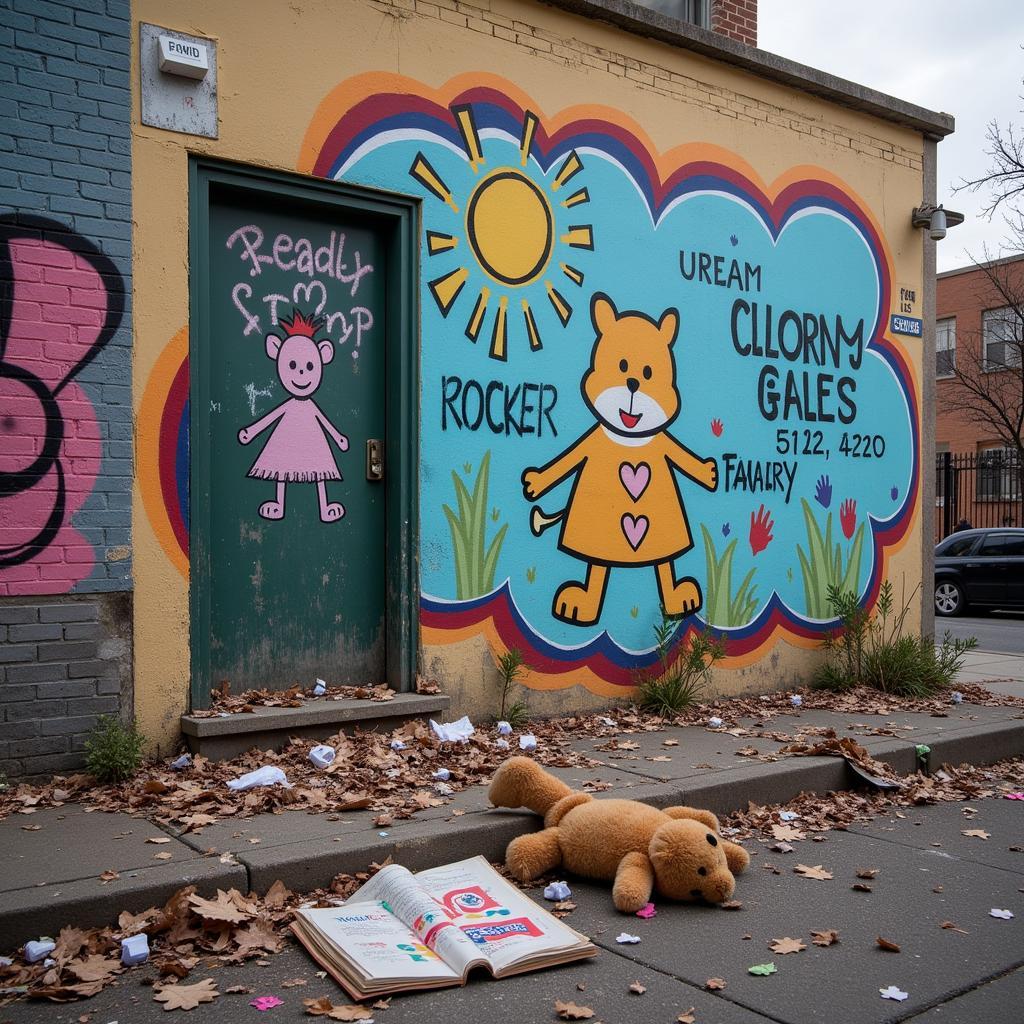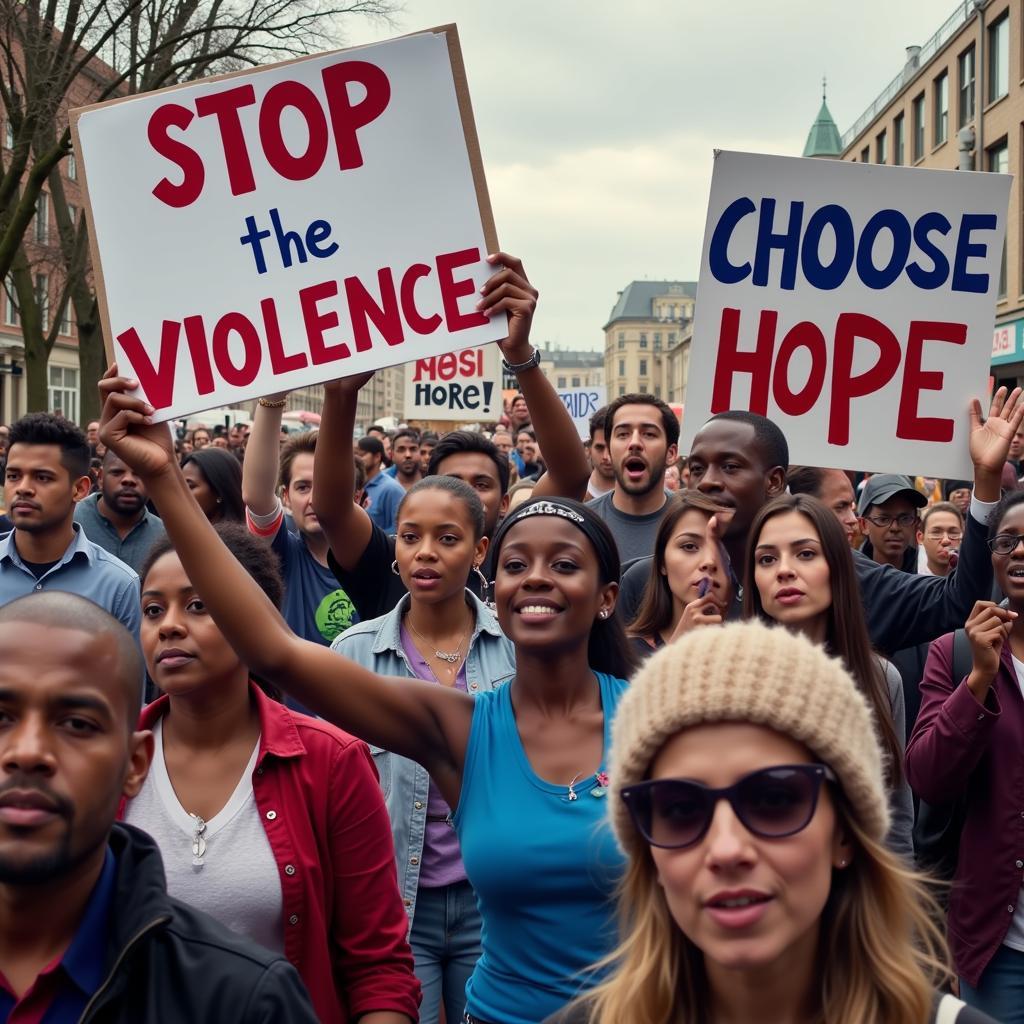Gangs and their impact on society cast a long shadow, influencing everything from local communities to international relations. But How Do Gangs Affect Society? The answer, unfortunately, is multifaceted and often devastating.
 The impact of gang violence on a community
The impact of gang violence on a community
The Ripple Effect of Gang Activity
Gangs don’t exist in a vacuum. Their activities create a ripple effect, impacting various facets of society:
- Increased Crime Rates: Gangs are notorious for their involvement in a wide array of criminal activities, from drug trafficking and extortion to human trafficking and murder. This criminal behavior directly contributes to a climate of fear and instability, eroding the social fabric of communities.
- Violence and Fear: Perhaps the most visible and immediate impact of gangs is the violence they perpetrate. Drive-by shootings, turf wars, and retaliatory attacks become commonplace, creating an environment where residents live in constant fear, afraid to even leave their homes.
- Economic Decline: The presence of gangs can cripple local economies. Businesses may be hesitant to invest in areas perceived as dangerous, leading to job losses and reduced economic opportunities for residents.
- Weakened Social Institutions: Gangs often target vulnerable youth, offering them a sense of belonging and purpose that they may lack elsewhere. This recruitment disrupts education systems, strains families, and undermines the ability of social institutions to function effectively.
 The allure of gangs for vulnerable youth
The allure of gangs for vulnerable youth
Understanding the Root Causes
To effectively address the issue of gangs, it’s crucial to understand the root causes that lead to their formation and proliferation:
- Poverty and Lack of Opportunity: Impoverished communities often lack access to quality education, healthcare, and job opportunities. This creates a fertile ground for gang recruitment, as they offer a sense of belonging, identity, and a way to escape the cycle of poverty.
- Family Dysfunction: Broken families, absent parents, and lack of positive role models can leave young people feeling lost and vulnerable, making them susceptible to gang influence.
- Social Exclusion and Marginalization: Discrimination, racism, and social exclusion can push individuals towards gangs, where they find a sense of community and acceptance that’s lacking elsewhere.
Breaking the Cycle: Strategies for Intervention
Combating the influence of gangs requires a multifaceted approach that addresses both the symptoms and the root causes:
- Community-Based Interventions: Programs that offer job training, educational support, and mentorship opportunities can provide at-risk youth with alternatives to gang life.
- Law Enforcement Strategies: While law enforcement is crucial in disrupting gang activity, it’s essential to adopt strategies that focus on community policing, building trust, and addressing the underlying social conditions that contribute to gang involvement.
- Family Support and Counseling: Providing families with the resources and support they need to create stable and nurturing environments can help prevent young people from turning to gangs.
 Community members united against gang violence
Community members united against gang violence
Conclusion
The question of “how do gangs affect society” demands a nuanced understanding of the complex interplay of factors that contribute to their existence. By addressing the root causes, investing in prevention programs, and fostering community resilience, we can work towards creating a society where gangs no longer hold sway. Remember, creating a safer and more peaceful world requires a collective effort from individuals, communities, and institutions working together to break the cycle of gang violence and build a brighter future for all.
FAQs about Gangs and Society
1. How can I protect myself and my family from gang violence?
2. What are the signs that a young person might be involved in a gang?
3. How can I report gang activity in my neighborhood?
4. What resources are available for former gang members looking to turn their lives around?
5. How can I get involved in community efforts to prevent gang violence?
Do you need help?
For support in dealing with gang-related issues, contact our 24/7 hotline: 02043854663, email us at [email protected], or visit our office at Khu 34, Bắc Giang, 260000, Vietnam. We are here to help.